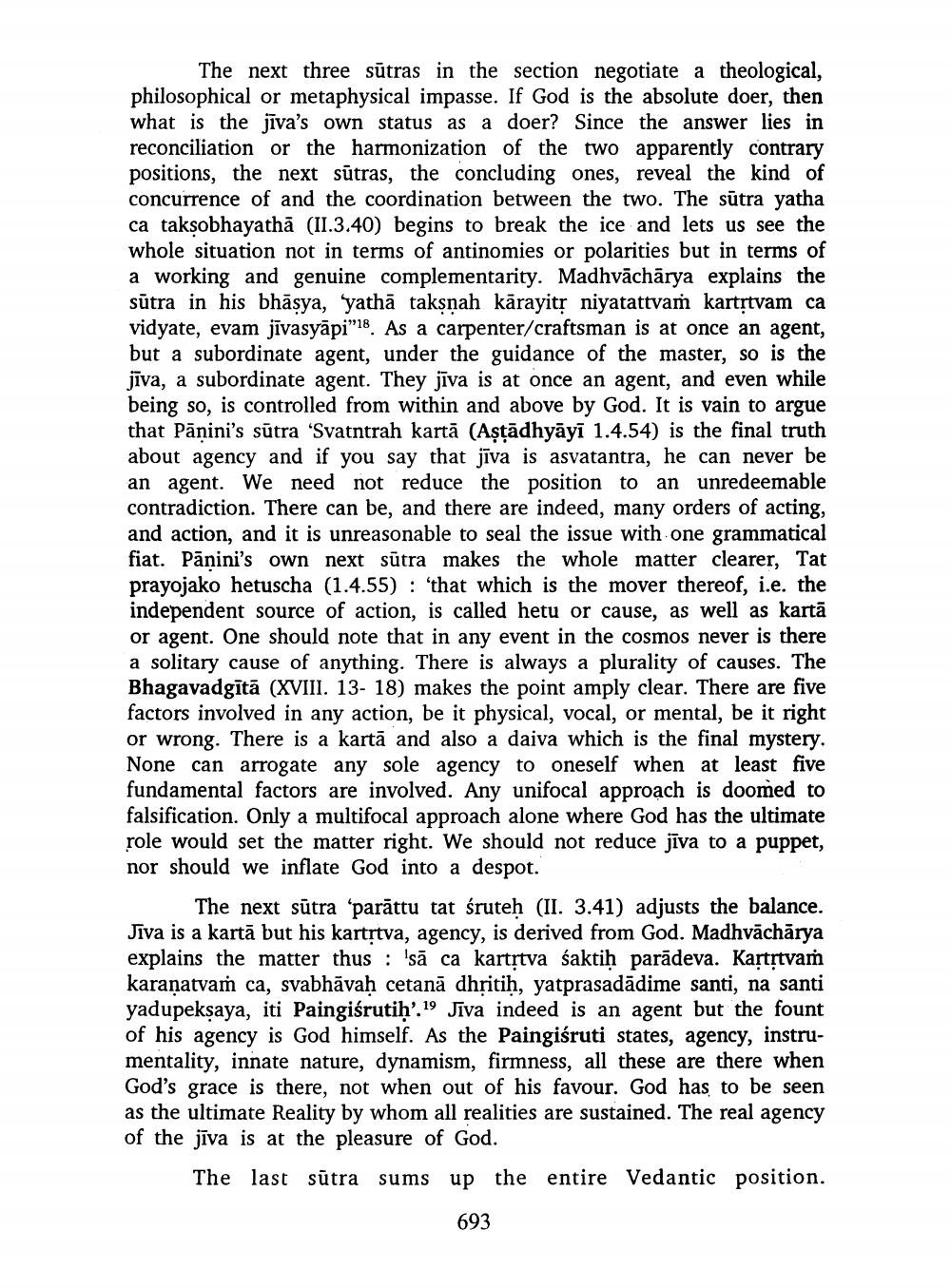________________
The next three sūtras in the section negotiate a theological, philosophical or metaphysical impasse. If God is the absolute doer, then what is the jīva's own status as a doer? Since the answer lies in reconciliation or the harmonization of the two apparently contrary positions, the next sūtras, the concluding ones, reveal the kind of concurrence of and the coordination between the two. The sūtra yatha ca taksobhayathā (II.3.40) begins to break the ice and lets us see the whole situation not in terms of antinomies or polarities but in terms of a working and genuine complementarity. Madhvāchārya explains the sūtra in his bhāsya, yathā taksnah kārayitr niyatattvam kartstvam ca vidyate, evam jīvasyāpi"18. As a carpenter/craftsman is at once an agent, but a subordinate agent, under the guidance of the master, so is the jīva, a subordinate agent. They jīva is at once an agent, and even while being so, is controlled from within and above by God. It is vain to argue that Pānini's sūtra 'Svatntrah kartā (Aștādhyāyī 1.4.54) is the final truth about agency and if you say that jīva is asvatantra, he can never be an agent. We need not reduce the position to an unredeemable contradiction. There can be, and there are indeed, many orders of acting, and action, and it is unreasonable to seal the issue with one grammatical fiat. Pānini's own next sūtra makes the whole matter clearer, Tat prayojako hetuscha (1.4.55) : 'that which is the mover thereof, i.e. the independent source of action, is called hetu or cause, as well as kartā or agent. One should note that in any event in the cosmos never is there a solitary cause of anything. There is always a plurality of causes. The Bhagavadgitā (XVIII. 13- 18) makes the point amply clear. There are five factors involved in any action, be it physical, vocal, or mental, be it right or wrong. There is a kartā and also a daiva which is the final mystery, None can arrogate any sole agency to oneself when at least five fundamental factors are involved. Any unifocal approach is doomed to falsification. Only a multifocal approach alone where God has the ultimate role would set the matter right. We should not reduce jīva to a puppet, nor should we inflate God into a despot.
The next sūtra 'parāttu tat śruteh (II. 3.41) adjusts the balance. Jiva is a kartā but his kartrtva, agency, is derived from God. Madhvāchārya explains the matter thus : 'sā ca kartrtva Śaktih parādeva. Kartstvam karanatvam ca, svabhāvah cetanā dhritih, yatprasadādime santi, na santi yadupeksaya, iti Paingiśrutih' 19 Jiva indeed is an agent but the fount of his agency is God himself. As the Paingiśruti states, agency, instrumentality, innate nature, dynamism, firmness, all these are there when God's grace is there, not when out of his favour. God has to be seen as the ultimate Reality by whom all realities are sustained. The real agency of the jīva is at the pleasure of God.
The last sūtra sums up the entire Vedantic position.
693




